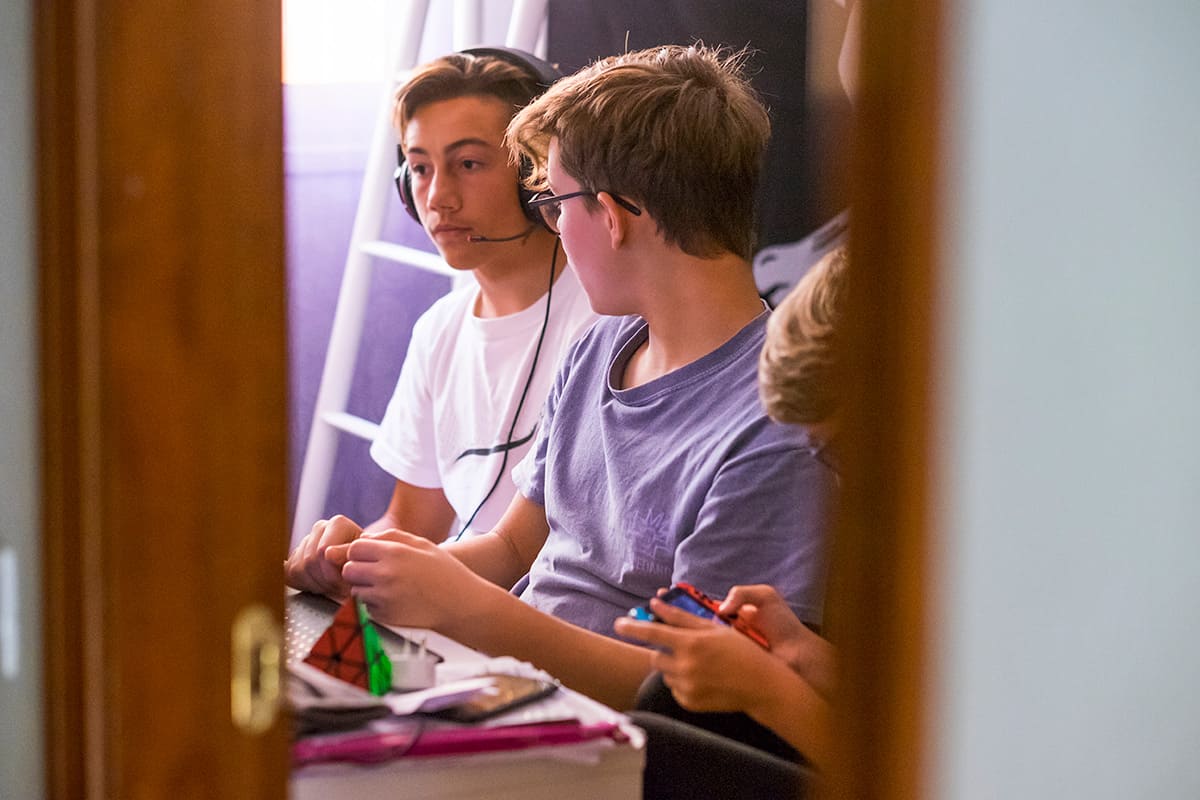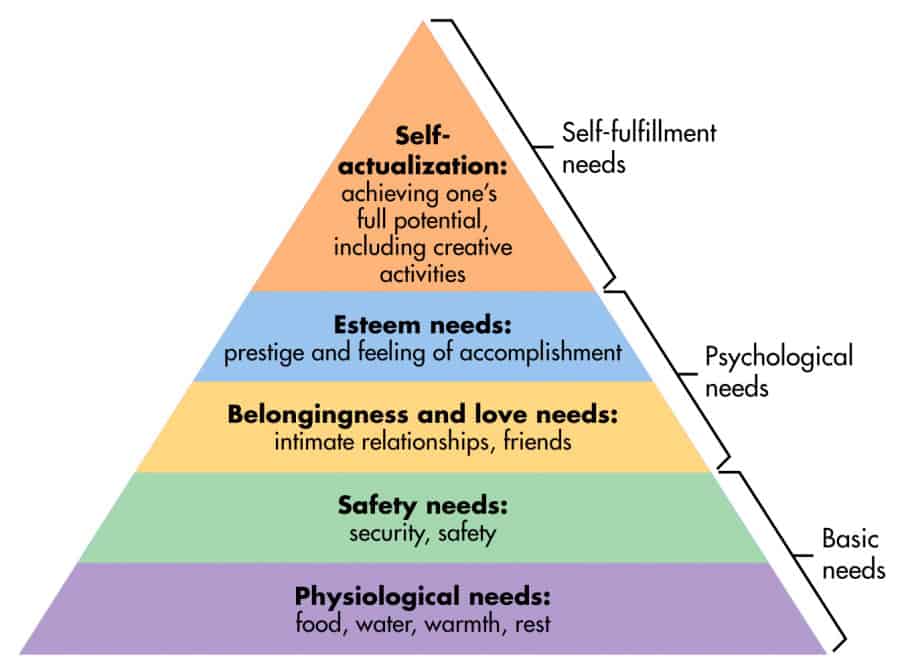
Video Games & Lack of Motivation – What to Do if Your Son Has Lost Motivation
As parents, one of the most challenging aspects of video games is watching your child stagnate in front of their screen.
If your child is not motivated to do anything else but play video games all day, then we understand.
We often get questions from concerned parents who say their child has no motivation for other things than gaming. Many parents think video games are making their children lazy.
And it seems as though no matter what you do or say to your son, it’s a never-ending cycle that can never be broken. It’s like a spell has been cast on your child and you simply can’t remove it.
But we want you to know that there is hope. You can do something about this, you just might need to understand a few things first about video games and lack of motivation, and why it happens.
If you have a son or a child at home who doesn’t want to do anything else than play games, then this article is for you.
Why Gamers Lose Motivation in Life
We all want to feel excitement in life, and we all want to be entertained. We also have a primal need for accomplishment and friendships.
Gaming addresses all those needs at the same time.
If we take a look at Maslow’s hierarchy of needs, we’ll see that to feel fulfilled human beings seek to address all of those values – especially belonging and esteem, which come right after our most important needs like our safety and physiological needs are satisfied.

As human beings, we simply need to fulfill those needs in one way or another.
For many gamers, video games offer a safe, easy, comfortable, and convenient solution to help them address those needs.
If you think about it, video games can help the gamer solve several challenges and address some of their most important needs, such as:
- Friendship
- Achievement
- Respect of and by others
- Entertainment
- Excitement
- Problem-solving
- Creativity
Because video games are so easily accessible nowadays, it’s the most comfortable way of addressing the most important needs without risking going out in the world and doing other activities.
- They won’t seek new friendships in their life because they have friends when they play games
- They don’t need a hobby where they can progress because they can do that in the video game
- They won’t be interested in talking to your or other family members because they get a sense of belonging online
- They don’t get bored when they play video games, so they won’t try hobbies
The key is thus limiting video game use and encouraging other activities that fulfill the same needs.
How Games Are Designed to Be Addictive
Playing video games has some benefits that have been scientifically proven. Gaming can improve cognitive abilities, problem-solving skills, hand-to-eye coordination, team-work skills,and more.
The downside?
Video games are addictive.
Game developers create video games so that gamers stay in the game for as long as possible. They encourage gamers to keep playing and even spend their (or their parents’) hard-earned money on in-game purchases.
You might have tried getting your child to quit video games before but failed. If that’s the case, then you know how hard it is to get them to stop playing video games. They’re available everywhere: on their phone, on the console, on the computer, and that Nintendo Switch…
Video games also have several tricks that will keep your child coming back for more, such as:
- Instant Gratification – video games provide instant satisfaction and gratification. They release large amounts of dopamine, which causes your child to feel satisfied when they consume the in-game content.
- Reinforcement Schedule – your child will be actively reinforced to come back to video games by allowing them to receive rewards and direct feedback for their efforts.
- Punishment for not Playing – if you don’t play video games for some time, you may get punished. You might lose points in competitive games, or you might lose items you had on your account.
- Streaks and Seasons – many games today have seasons and streaks. For instance, in the case of seasons, the content inside the game gets changed or new content gets added, so if you miss it, you’ll feel like you’re getting left behind by other players.
How To Motivate Your Child to Do Something Else Other than Play Video Games
If you don’t know what to do to motivate your child if they only want to play video games, there are a few things you can try. We have separated these suggestions based on developmental stages and ages so you can better understand the context of your child.
Tweens
Tweens are a common age group we work with here at Game Quitters. The biggest challenge in this age group is that tweens lack self-control. because their brains haven’t developed the ability to control their impulses and actions fully.
This means that you’re going to have to take an active role in motivating your child to do anything other than play video games all day or sit in their room and scroll through social media.
There are a few things that you can do to motivate your tween. Try these steps and see how it goes.
- Take some time to truly understand your child. In this step, you’ll want to get into why your gamer spends so much time playing video games or on social media. Do they have nothing else to do? Or perhaps there’s an even bigger reason – such as being bullied at school, social anxiety, or even depression. Whatever it is, you’ll need to find out if there is something going on in their lives and what it is.
- Prepare a plan. Determine what changes you want to see in your child’s behavior. Of course, you would want them to stop playing video games so much and get them to do other things, but there might have other priorities as well such as getting your child to be more physically active, for example.
- Implement the plan. The last step is to gain some control over your child’s gaming behaviors.. This means limiting gaming and perhaps social media, which you can do by setting up house rules and offering and/or finding replacement activities (our hobby tool has a lot of great ideas).You’ll also need to actively encourage them to participate in those activities and make sure that you give them enough support when they need it – but don’t forget about your wellbeing in the process!
Adolescents/Teens
If you have a teenager at home, then you know how difficult it can be to deal with them. This is the time when hormones start popping out, which can result in rebelliousness or even unusual behaviors, which is sometimes reinforced by peers.
When you want to motivate your teenager, perhaps the key steps are to offer them support and let them know it is safe to open up to you.
Teenagers can become closed off when it comes to their feelings. There might be an external reason why they resort to playing video games, such as bullying, social anxiety, problems at school or in relationships, or other problems that they keep to themselves.
Instead of working against your teenager by using punishment as a way to keep them from playing video games, a more effective strategy is to build trust and develop a better relationship with your child. You will need to talk to them and ask them about their feelings and dig a little deeper to find the real reason why they resort to video games.
Young Adults
Often when it comes to lack of motivation in young adults, we see a trend: almost all of the young adults we work with have a lack of direction in their lives.
They don’t know what to do with their lives, but they still want to feel a sense of progression. They find that in video games, so they don’t go out to find a job or develop a skill or even start a business of their own.
Young adults should be responsible for their actions, so you can’t intervene as actively as you can with teens or tweens; however, you can still help.
You will need to encourage them to stop playing video games and go out and find replacement activities that will address the same needs as video games:
- Start a hobby or start developing a skill that allows them to progress, which will give them a purpose in life
- Do activities that help them create new friendships
- Get physically active
You might also want to encourage them to talk to a therapist (find one here) if talking to you doesn’t work. Therapy is one of the most effective ways of finding motivation, identifying underlying issues and reducing video games.
We Can Help
If you struggle to motivate your child to do something else other than play video games all day, we can help you.
Our family program RECLAIM, is aimed specifically at helping parents encourage their children to develop healthier habits and get control over video games. It’s backed by science and years of research, and you’ll get constant support from us and will be able to implement your plan no matter what age your child is.
In RECLAIM, you’ll learn the following:
- How to reduce arguments and conflicts
- Why your gamer is lacking in motivation
- How to improve communication with your child
- How to build and implement a plan for you and your family
- How to control gaming and screen time
